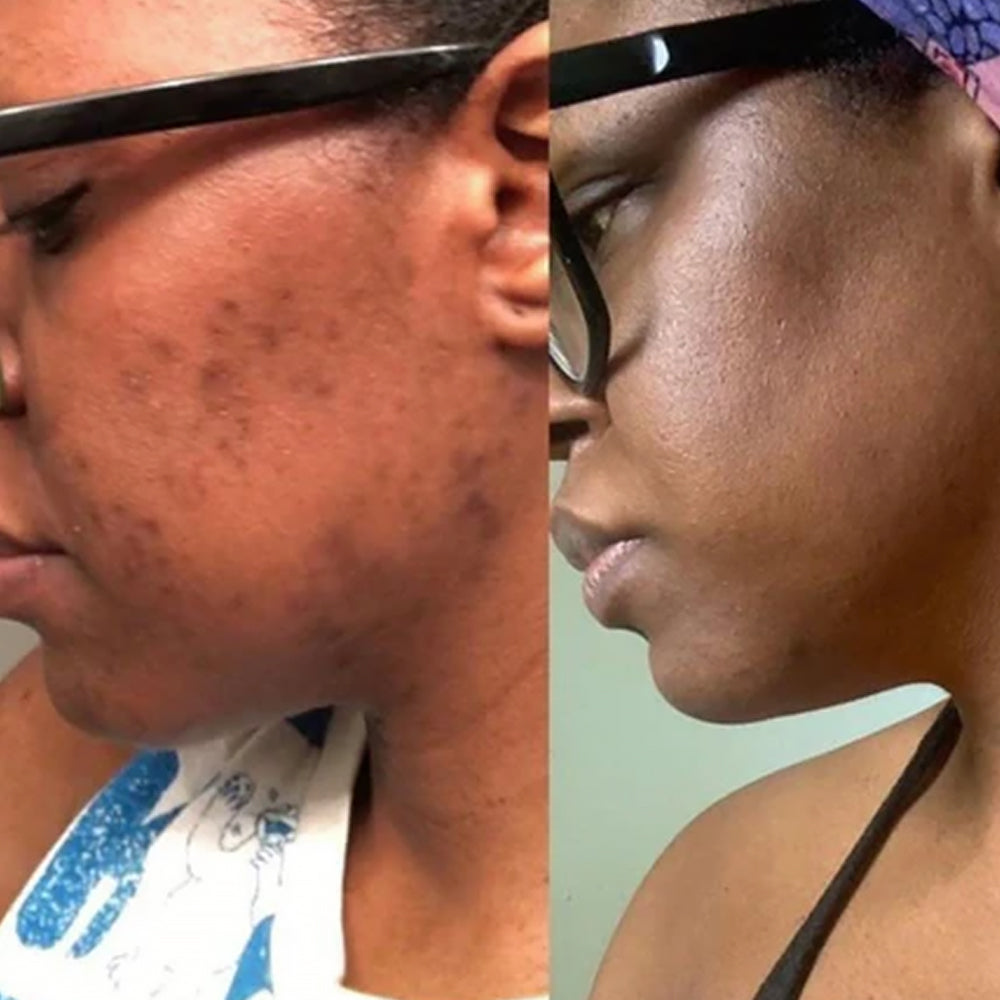What Is Abyssinian Oil And What Are The Benefits?
In the world of beauty and skincare, Abyssinian oil has recently emerged as a beacon of hydration and rejuvenation, casting a light on the path to natural and effective skincare solutions. Derived from the seeds of the Crambe Abyssinica plant, a flowering kale native to the Mediterranean and East Africa, Abyssinian oil is making waves for its unique properties and versatility. But what exactly is Abyssinian oil, and why is it gaining popularity in skincare circles?
Unveiling Abyssinian Oil: A Scientific Perspective
Abyssinian oil, scientifically known as Crambe Abyssinica seed oil, is prized for its remarkable fatty acid profile. It's rich in erucic acid, a long-chain monounsaturated omega-9 fatty acid, which constitutes over 50% of the oil's composition. This high erucic acid content is what sets Abyssinian oil apart, offering a unique combination of hydration and silkiness without the greasiness typically associated with oils.
The oil's composition also includes significant amounts of linoleic and oleic acids, both of which play crucial roles in skin health. Linoleic acid, an omega-6 fatty acid, is essential for maintaining the skin's barrier function and integrity. Oleic acid, on the other hand, enhances skin permeability, allowing for deeper penetration of nutrients.

Extraction and Purity
The extraction method plays a key role in preserving the oil's natural benefits. Abyssinian oil is extracted through a cold-pressing process, which ensures that the fatty acids, vitamins, and antioxidants are not degraded by heat, maintaining the oil's efficacy and potency. At Crambé, our crops are grown locally in the rich soils of east coast of Canada, producing a truly pure Abyssinian oil that's great for your skin and the environment.
Abyssinian Oil vs. Other Popular Oils: Benefits and Sustainability
When it comes to facial oils, Abyssinian oil stands out for its unique benefits and sustainability advantages. Let's compare Abyssinian oil with Argan oil, Jojoba oil, and Rosehip oil to understand why it might be the superior choice for your skincare routine.
Abyssinian Oil vs. Argan Oil
Benefits: While Argan oil is renowned for its moisturizing properties and high vitamin E content, Abyssinian oil offers a lighter, non-greasy feel, making it suitable for all skin types, including oily and combination skin. Abyssinian oil's high erucic acid content provides a unique, silky texture to the skin without clogging pores. Abyssinian oil has a higher concentration of omega-9 fatty acids, which promote collagen production and improve skin elasticity.
Sustainability: Argan oil production is specific to Morocco, which limits its supply and raises concerns about sustainable harvesting. In contrast, Abyssinian oil is derived from the Crambe Abyssinica plant, which is more versatile in terms of cultivation locations, reducing environmental strain and supporting biodiversity. After our oil is cold pressed and extracted, the remaining crop husks are used for cattle-feed making our facial oil fully sustainable.
Abyssinian Oil vs. Jojoba Oil
Benefits: Jojoba oil is actually a wax ester that closely mimics human sebum, making it an excellent moisturizer. However, Abyssinian oil goes a step further by offering rapid absorption and exceptional moisturizing without leaving a residue, making it preferable for use under makeup or for individuals seeking a lighter feel.
Sustainability: Jojoba plants require specific climates to thrive, which can limit where they can be sustainably grown. Abyssinian oil's source plant is hardier and can be grown in a variety of environments, making it a more sustainable option in the long term.
Abyssinian Oil vs. Rosehip Oil
Benefits: Rosehip oil is celebrated for its high content of vitamins A and C, promoting skin regeneration and brightness. Abyssinian oil, while also promoting skin health through its rich unsaturated fatty acid content, offers superior moisturizing benefits and a lighter texture, making it suitable for more frequent use for all skin types.
Sustainability: Rosehip oil production often involves the wild harvesting of rosehips, which can impact local ecosystems. The cultivation of Crambe Abyssinica for Abyssinian oil can be more easily controlled and scaled in a sustainable manner, ensuring minimal environmental impact.
The Multifaceted Benefits of Abyssinian Oil
Intense Hydration
The molecular structure of Abyssinian oil allows it to mimic the skin's natural oils, providing intense hydration without clogging pores. This makes it an excellent moisturizer for all skin types, especially for those seeking a lightweight yet deeply nourishing solution.
Enhanced Elasticity and Texture
Abyssinian oil's unique composition supports the skin's natural collagen production, enhancing elasticity and firmness. Regular use can lead to smoother, more supple skin, with a noticeable reduction in fine lines and wrinkles.
Non-comedogenic Nature
Unlike many natural oils that can exacerbate acne and breakouts, Face Forward's non-comedogenic nature makes it suitable for even acne-prone skin. Its ability to regulate oil production ensures that it moisturizes without contributing to excess sebum.
Protective Antioxidant Properties
Rich in antioxidants, Abyssinian oil helps to protect the skin from environmental stressors such as pollution and UV radiation. This protective barrier aids in preventing premature aging and maintains the skin's overall health.
Versatility in Application
Beyond its skin benefits, Abyssinian oil is also a versatile ingredient in hair care and nail growth. Its conditioning properties impart shine and manageability to hair, making it a valuable component of natural hair treatments.
Conclusion
As we dive deeper into the benefits of natural ingredients in skincare, Abyssinian oil stands out for its unique properties and compatibility with all skin types. Its combination of hydration, non-comedogenic nature, and antioxidant protection makes it a powerful ally in the pursuit of healthy, radiant skin.
Embracing Abyssinian oil in your skincare routine can unlock the door to natural beauty, underscored by science and sustainability.
To learn more about Crambé Face Forward Rejuvenating Facial Oil made with 100% pure Abyssinian Oil, click here.
















